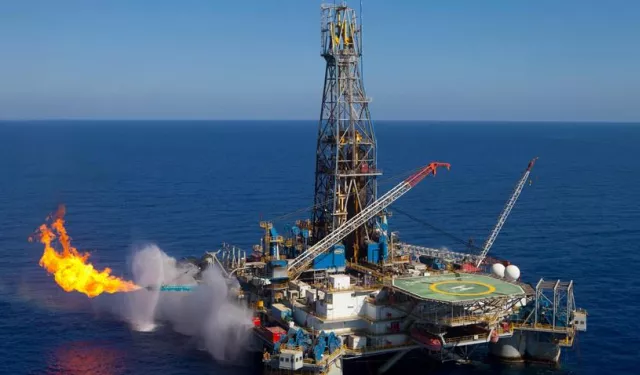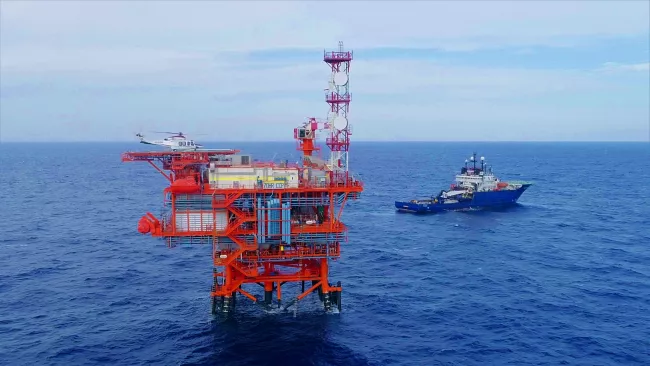
Why accept the Israeli gas deal’s take-or-pay terms?
In recent months, Egypt has repeatedly promised energy self-sufficiency, even as it amended a supply contract with Israel to ensure flows until 2040.
The revised agreement commits Cairo to import additional volumes under long-term take-or-pay conditions, obliging the government to pay for contracted quantities regardless of global prices or whether the gas is delivered. Critics question why Egypt would commit to such a deal while simultaneously pursuing alternative supply plans.
A producing country that imports
The deal, which Israel hailed as its most important in the Middle East, was disclosed by NewMed Energy—a partner in the Leviathan field—in a filing to the Tel Aviv Stock Exchange. The original 2019 contract, valued at $35 billion, covered about 60 bcm of gas through 2030. The amendment extends deliveries to 2040 and increases the committed volume to 130 bcm.
The agreement has drawn political backlash for bolstering Israel while it is perpetrating genocide against the Palestinian people. From an economic standpoint, opponents highlight the take-or-pay clause, which requires Egypt to pay even if global prices drop or the gas is not delivered.
The $35 billion deal is now binding, even if domestic output rises to 7 bcf/d, which matches actual consumption, said Medhat Youssef, a former vice chairman of the state petroleum authority. He called the 20-year duration unusually long for imports, given prospects of self-sufficiency.
Since mid-2023, Israeli gas has become a critical supply source as local production declined and alternatives became scarce. This forced Egypt to use imported gas for domestic consumption instead of liquefying it for export. Now, with plans to expand local output and having rented four floating regasification units while also sourcing gas from Cyprus, officials face the question of why they still need a binding agreement for Israeli supply.
Not full self-sufficiency
An informed petroleum ministry official told Al Manassa that the expected production rebound would not fully meet domestic demand, which is projected to grow by about 7% annually. Natural gas imports from Israel, currently at 1.1 bcf/d, are expected to rise to 1.5–1.6 bcf/d by late 2026 or early 2027.
According to the same source, even if output climbs to 6.6 bcf/d—up from about 4.16 bcf currently—demand in three or four years time would already be near 8 bcf/d.
An official at the Egyptian Natural Gas Holding Company (EGAS) added that true self-sufficiency “requires years of timely payments to foreign partners and new gas field discoveries rather than just drilling additional wells in mature blocks.”
Cheaper than LNG
For decision-makers, Israeli pipeline gas offers a cheaper alternative to LNG. “The gas we receive through pipelines from Israel costs about half the price of global LNG,” said former petroleum minister Osama Kamal.
According to Gamal El-Qalyoubi, an oil and energy engineering professor at AUC, pipeline imports are unaffected by liquefaction and shipping costs and are priced at around $7 to $7.5 per million BTU. This compares to $12 for LNG, plus an additional $3.5 for regasification, transport, and insurance, bringing the total cost to $15.5 per million BTU.
The government has recently increased its chartering of regasification vessels after repeated Israeli supply interruptions during the war on Gaza. The lower cost of Israeli gas is a result of deliveries via cross-border pipelines.
Kamal stated that the amendment did not include any provisions that raised costs. “The amendment did not change the pricing mechanism for the gas Egypt receives; it only changed delivery schedules and volumes,” he said.
Coping with seasonal strains
The Petroleum Ministry source framed the amendment as part of a diversification strategy to manage supply shocks. Medhat Youssef agreed, saying the deal allows Egypt to meet unexpected surges in demand, noting that even the UAE, a major gas producer, imports LNG from Qatar during peak periods.
Egypt began importing Israeli gas even when it was self-sufficient, and was able to re-export the surplus. Some analysts argue today’s increased purchases may be motivated by similar profit opportunities from resale. In 2022, Egypt, Israel, and the EU signed an agreement to export Israeli gas to Europe with the aim of reducing European dependence on Russian gas, as a tool to pressure Russia to stop the war against Ukraine.
However, global competition is stiffening. “New LNG projects in the US and Qatar are putting downward pressure on prices. To compete, Egypt needs flexible pricing and lower costs,” said Ramadan Abul-Ela, petroleum engineering professor at Pharos University in Alexandria.
Egypt built liquefaction plants at Idku and Damietta in the early 2000s. This year, it also signed a deal to liquefy Cypriot gas for re-export. Abul-Ela cautioned that European restrictions on Russian energy may not last the 15-year duration of Egypt’s commitments. “If Russian pipeline gas returns in force, Europe could pivot back to cheaper supplies,” he said.
Some suggest funneling Israeli gas into domestic energy-intensive industries. Abul-Ela said this could help in the short term by making up for shortages from past years, but it wouldn’t be enough to absorb surplus volumes once plants reach full capacity.
To minimize risks, he urged Egypt to explore global marketing options for Israeli gas and to build new energy-intensive industries as outlets for potential oversupply.
